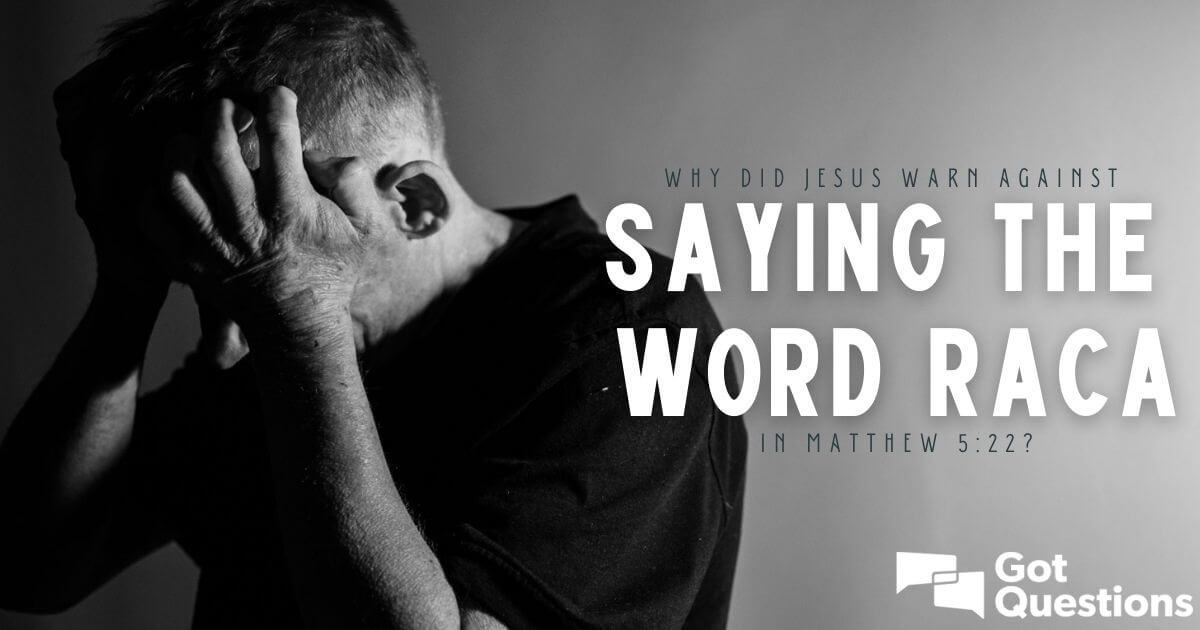
Our Lord says, “whoever is angry with his brother, shall be liable to judgment, and whoever says to his brother raqa, will be answerable to the Sanhedrin, whoever says fool, will be liable to the fiery Gehenna.”
With Our Blessed Lord’s statement, there are different degrees of anger toward a person, which Jesus is warning against. The first degree was anger without words. When Jesus says, “whoever is angry with his brother, shall be liable to judgment”, He was referring to how Jews used to indicate contempt, by spitting on the ground, rather using harsh words.
When Jesus said, “whoever says to his brother raqa, will be answerable to the Sanhedrin.” He is speaking of the second degree of anger,-- as used in the word “raqa”. The word “raqa” was used by Jews to insult someone, to whom they were angry. Internal feelings of anger are expressed, such as calling someone a “vile, contemptible, brainless wretch.”.
The third degree of anger, Jesus speaks, is the worse kind. Worse than the word, “raqa” was the word “fool”, which means one had lost all moral and religious sense.. resulting in punishment of the sword, or the person was to be stoned. That is why Jesus said, whoever says “fool”, will be liable to the fiery Gehenna.” which refers to burning unceasingly in hell.
Our divine Lord then said, “Therefore, if your bring your gift to the altar, and therefore recall that your brother has anything against you, leave your gift there at the altar, go first and be reconciled with your brother, and then come and offer your gift.”
What does Jesus mean with regard to bringing gifts to the altar? Bishop McIvelly states that when one brings a gift to the altar, it is a sacrifice, which is being offered, specifically, he refers to the sacrifice of everyday work. In another words, if we purposely insult someone by calling them a “fool”,--- the work, which is being offered-- as a sacrifice, becomes displeasing to God, because reconciliation with one’s neighbor is more important, than the work being offered. Our Lord prefers fraternal charity and love to offering a gift or a sacrifice. David in the psalms states, “For you are not pleased with sacrifices, should I offer a holocaust, you would not accept it.” “But the sacrifice of humbled and contrite heart, you will not spurn.”
When we come to the Mass, all of us are to offer our sacrifices in union with the sacrifice of Jesus on the altar. If we take the words of Jesus to heart, our sacrifice would not be acceptable, if we come to the altar of the Blessed Eucharist, and are not reconciled with our neighbor.
Therefore, if we find our self in need, to reconcile with a co-worker, family member or our neighbor, we need to settle with our opponent quickly, before we offer our sacrifices with the one sacrifice of Jesus at Mass. It is also more important to interrupt our work-- to be reconciled, rather than to continue with our work, which would be displeasing to God.
Lack of reconciliation can at least-- cause us to go to purgatory, and at most, cause us to forever burn in the fiery furnace of hell. We don’t want our opponent, to hand us over to the eternal judge, and the judge to hand us over to the guard, who will throw us into prison, until we pay the last penny. Although purgatory, is better than the fiery judgment of Gehenna, it is best to be reconciled, while we have the opportunity, and be accepted into our glorious heavenly home, where our Blessed Lady, and Her Divine Son, await us with open arms.


No comments:
Post a Comment
Note: Only a member of this blog may post a comment.